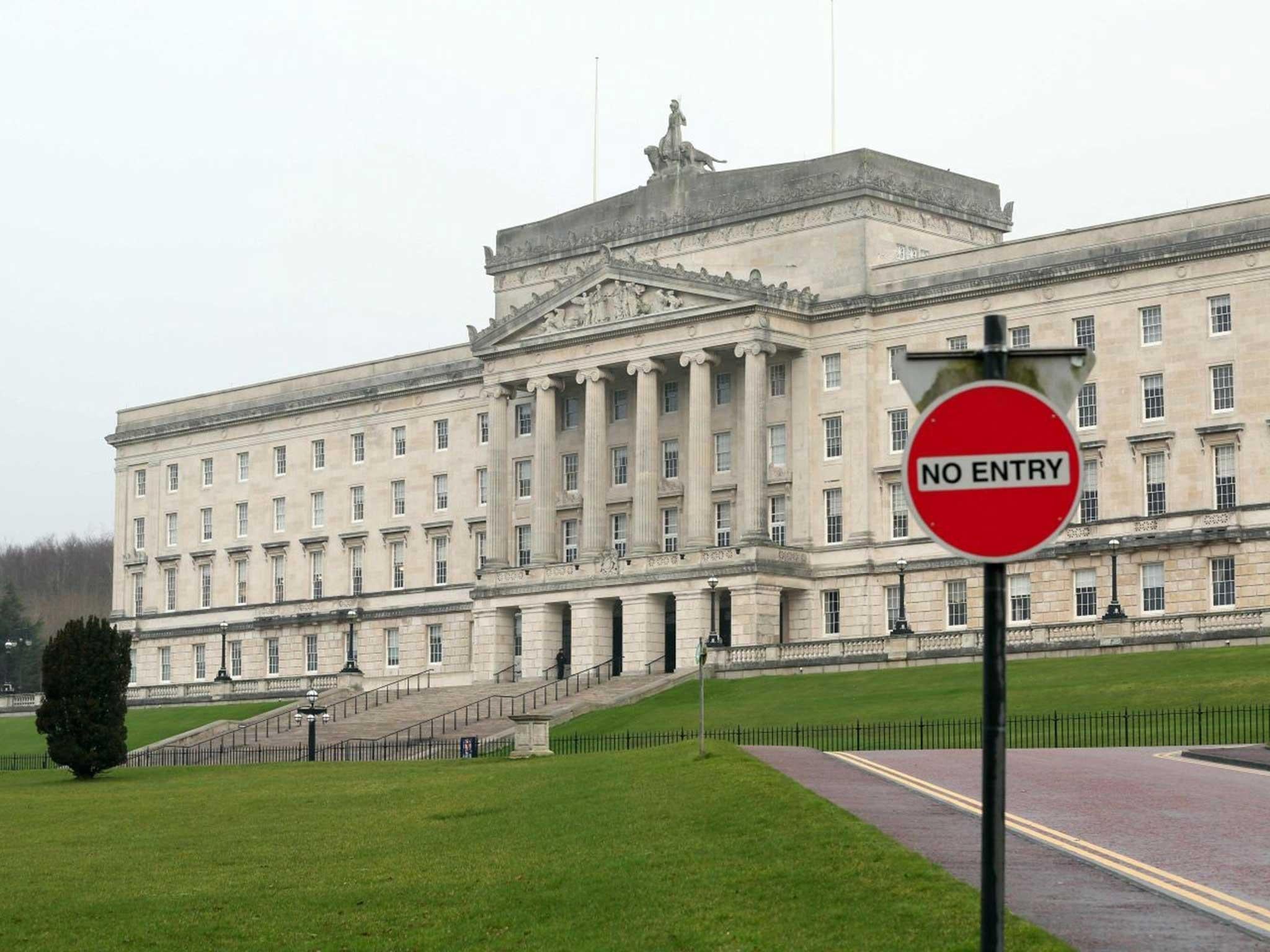The Northern Irish are being denied a say in Brexit talks as long as our government remains at an impasse
The impact of the hardest of borders being slashed across Ireland would be devastating. While we argue amongst ourselves, we deprive Northern Ireland of a strong and crucial voice during the negotiations with Brussels

Your support helps us to tell the story
From reproductive rights to climate change to Big Tech, The Independent is on the ground when the story is developing. Whether it's investigating the financials of Elon Musk's pro-Trump PAC or producing our latest documentary, 'The A Word', which shines a light on the American women fighting for reproductive rights, we know how important it is to parse out the facts from the messaging.
At such a critical moment in US history, we need reporters on the ground. Your donation allows us to keep sending journalists to speak to both sides of the story.
The Independent is trusted by Americans across the entire political spectrum. And unlike many other quality news outlets, we choose not to lock Americans out of our reporting and analysis with paywalls. We believe quality journalism should be available to everyone, paid for by those who can afford it.
Your support makes all the difference.The weight of pessimism hangs over the Northern Irish political landscape like a grotesquely dark cloud, heavy with ideological fervour and inconsolable stubbornness, as yet another deadline for Northern Irish government to restart flies past us, as if caught up in Storm Ophelia’s headwind.
The Monday just passed was being heralded in advance as the day our local government, Stormont, would return. As it turned out, hope dissipated into the kind of hot air that continues to blow out of the DUP and Sinn Fein; we have gone nearly an entire year without government.
This dire position is best summed up by the Alliance party politician, Stephen Farry: "It’s beggars belief that the DUP and Sinn Fein have put this matter of Irish language and culture on such a pedestal that they have lost a sense of proportion and perspective on the wider need to provide good governance to Northern Ireland, to reform our public services, invest in our economy, and to have a proper Brexit plan."
Half a year ago, Sinn Fein decided that they would not enter government without an Irish Language Act. The DUP refused at first, and then said they will accept an Irish Language Act, but in the form of a broader Culture Act. So, it was the same present, but in different wrapping paper.
Sinn Fein refused, arguing that an Irish Language Act in itself wasn’t enough; it must be a standalone Act.
The most recent bout of negotiations between the DUP and Sinn Fein, culminating in Bill Clinton flying in to sprinkle some of his magic over our insufferably intransigent politicians, has again fallen flat on its face.
Both the Belfast Telegraph and Irish Times lay the blame squarely at Sinn Fein’s feet; the story goes that while the Northern Irish leadership was prepared to compromise last week, the party’s southern hierarchy overruled it, reinstating the stalemate; there is concern that Sinn Fein have decided a Northern Ireland in Brexit turmoil adds fuel to the United Ireland fire, and they aren’t too concerned about us making up the kindling in the meantime.
There is now the real prospect that we will enter 2018 with the Good Friday agreement floundering on the rocks in the year it should be celebrating its 20th anniversary.
The spectre of a No-Deal Brexit is beginning to loom ever-larger as the UK struggles in its own faltering negotiations with the EU. The impact of the hardest of borders being slashed across Ireland would be devastating. So while we argue amongst ourselves, we deprive Northern Ireland of a strong and crucial voice during the negotiations with Brussels. The gaping hole where our Brexit strategy should be is just one of the damaging consequences of our absent administration.
So we must ask: can we build lasting local government here?
The answer is yes, we can – unquestionably, but not like this. We are building upon unstable foundations.
People mistake the problem as being solely down to Northern Ireland’s history.
Imagine our system applied to Westminster: the UK being without government until both Labour and the Tories form a coalition and completely agree upon a Queen’s Speech.
How on earth would that work? Mandatory coalition, rather than coalition by consent, is a completely manic democratic model, and yet, that is what Stormont is burdened by.
It was necessary in 2007, to build compromise and navigate those first wobbling years. But the country is far different a decade on, and the training wheels should no longer be worn, as its making gathering any momentum and pace impossible.
The current system we have makes failure inevitable. A new system would at least give us a chance.
The great Ulster poet John Hewitt once wrote that the Northern Irish are “a people endlessly betrayed by our own weakness, by the wrongs we suffered in that long twilight over bog and glen…and by glittering fables which gave us martyrs when we needed men”.
More than ever we need those men and women who declare themselves leaders to prove themselves as such – to show vision and aspiration to shake our political structures so we can finally form stable political foundations. Otherwise, we stare down at the prospect of a Brexit guided entirely by others’ hands – an economic risk we cannot be willing to take.
Join our commenting forum
Join thought-provoking conversations, follow other Independent readers and see their replies
Comments